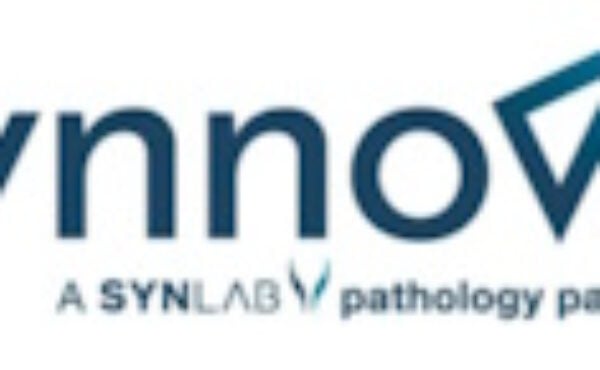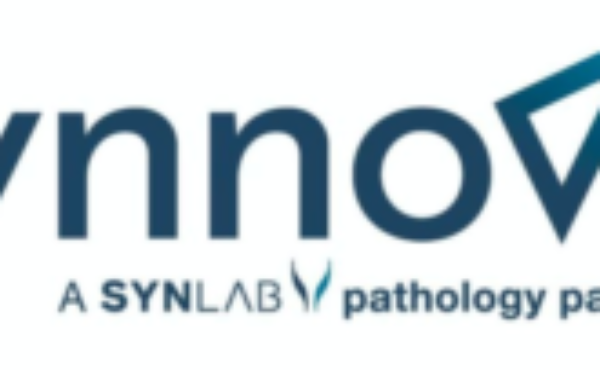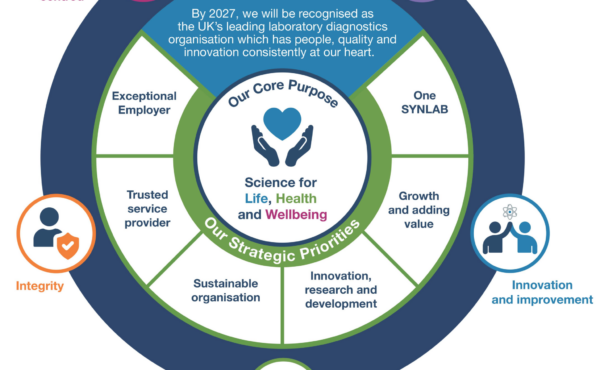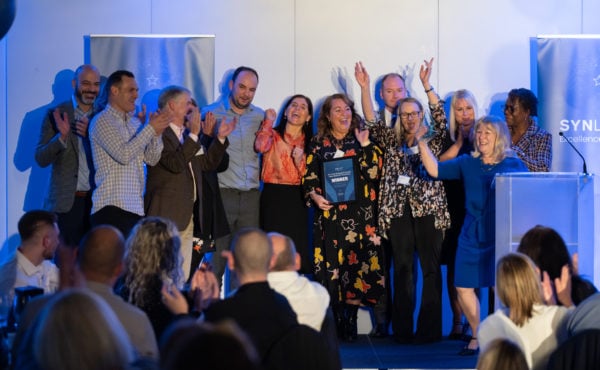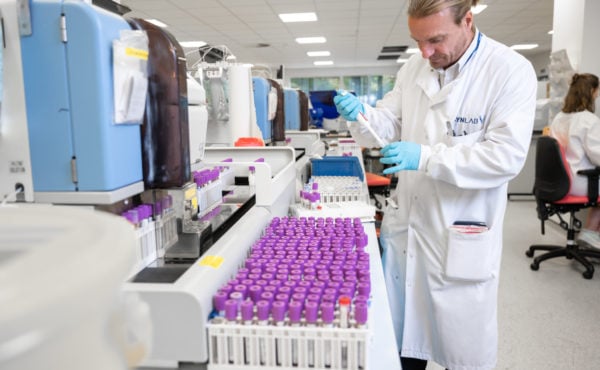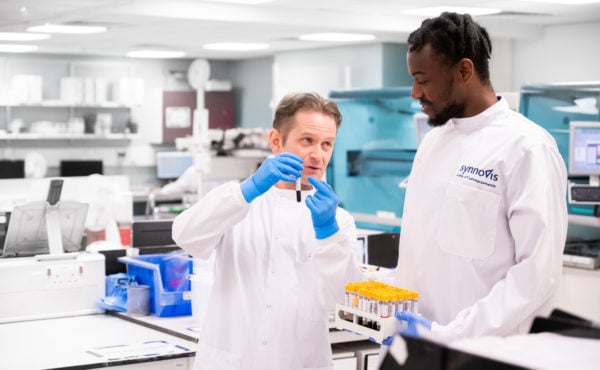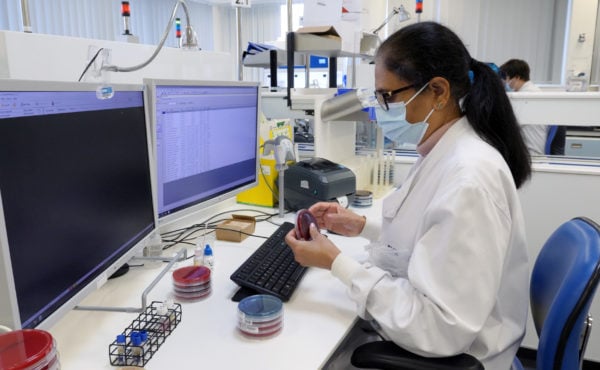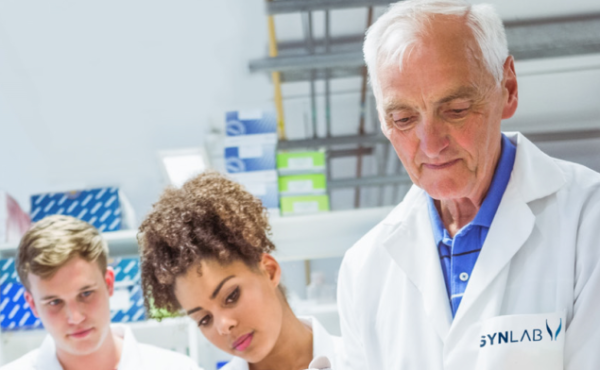Published: 11th February 2022
In celebration of International Day of Women and Girls in Science, we are delighted to unveil a series of short interviews featuring some of the many inspirational female colleagues who work with us.
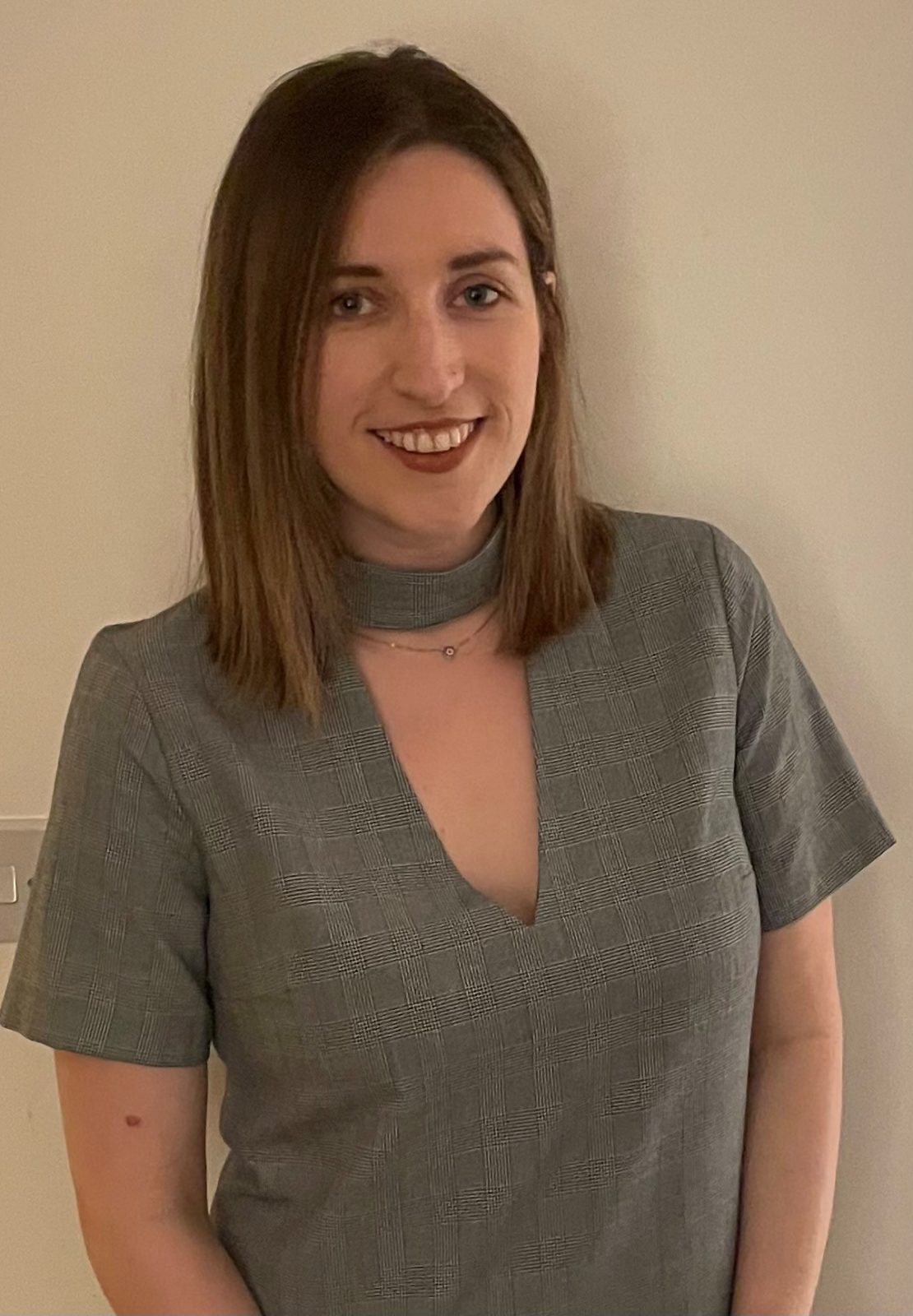
Jessica Shore
Specialist Biomedical Scientist, Viapath
1. When did you decide to pursue science and what inspired you to do so?
I have always found biology fascinating, so I decided to complete a work placement at a local hospital during my final year at secondary school. The placement made me realise that I had a particular interest in healthcare science. This experience led me to study biomedical science at university, where I also worked part time in a diagnostic laboratory, which confirmed my passion to work within pathology.
2. What is the most rewarding part of being a scientist for you?
Working as a scientist in a hospital allows me to combine my curiosity for pathology with the ability to provide a high level of patient care and help provide a better prognosis for each patient; ultimately the work that I carry out has a big impact on improving the level of healthcare delivered in the hospital.
3. What are the greatest challenges?
Working in a high-pressure job can be challenging at times, especially in such a critical industry, however I feel that the rewards of improving patient healthcare far outweigh these challenges.
4. What do you think that companies like SYNLAB can do to encourage more girls and women to seek careers in areas of life sciences?
Utilising female ambassadors to communicate the benefits of becoming a healthcare scientist at career events can help inspire and encourage women at the start of their careers to choose the path in life sciences. Another aspect that is important is developing a clear and fair maternity policy, and allowing flexible working for those combining family care with a career.
5. What benefits do you as a scientist get from working at SYNLAB?
SYNLAB provides a network of scientists in similar careers to mine, allowing me to meet individuals I would not have had the opportunity to meet otherwise. Working for SYNLAB has allowed me to develop professionally by working with clinical scientists to deliver various research projects, alongside my day-to-day role. I also have the opportunity to deliver improvement projects and increase engagement across the company by becoming involved in the Future Leaders in Innovation group.
6. Even though we see more women pursuing careers in life sciences, we still have a long way to go based on the UNESCO statistics. What would you tell a young person considering studies in science, technology, engineering and mathematics (STEM) disciplines?
Pursuing a career in a STEM discipline is an exciting path which allows you to make a significant impact in the world. These careers are ever changing, which means that the work is always stimulating and meaningful. In healthcare, whether you are working in research or diagnostics, you will be working to save lives – there is no bigger benefit.
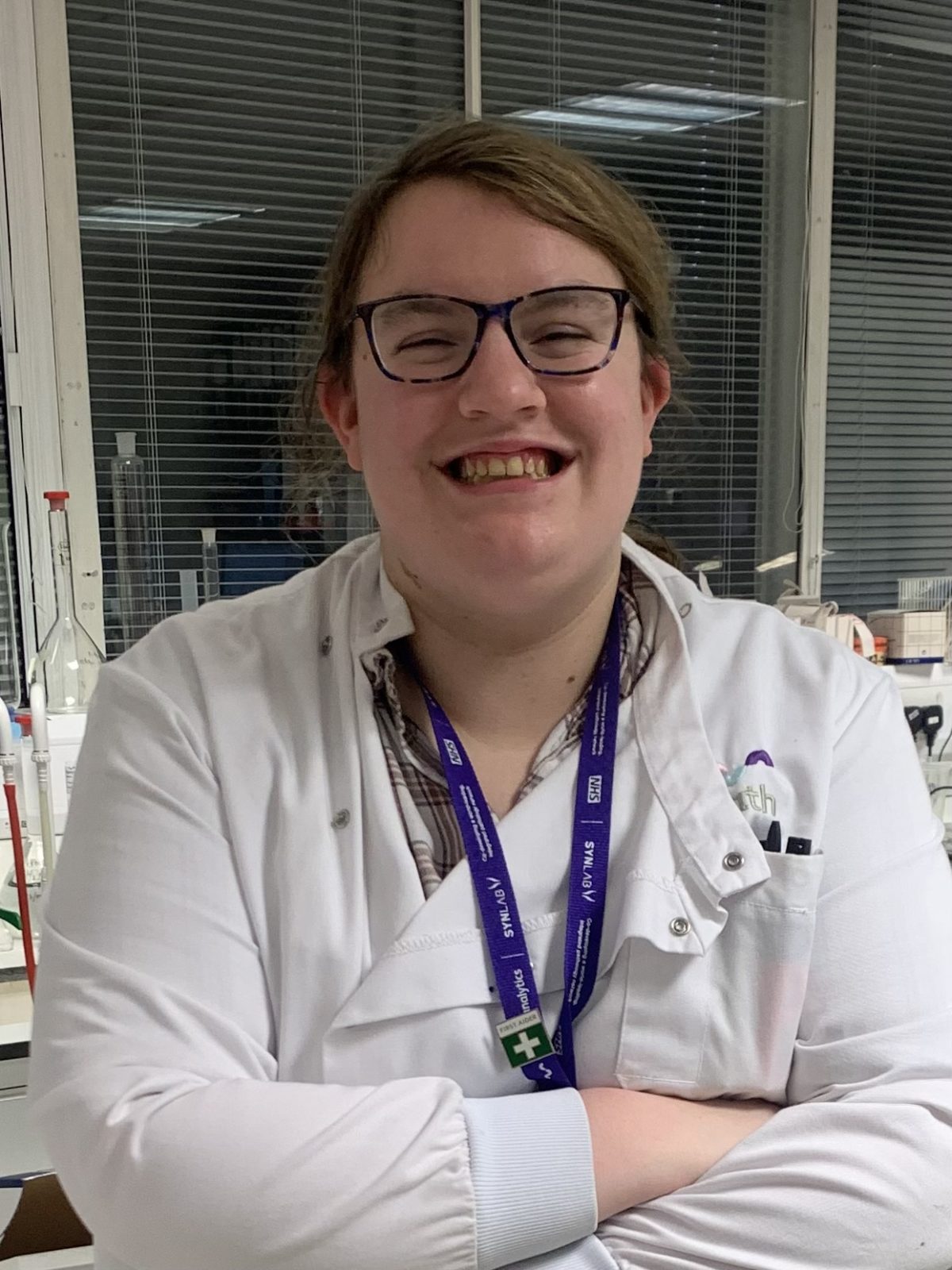
Jessica Goldsmith
Medical Laboratory Assistant, Viapath
1. When did you decide to pursue science and what inspired you to do so?
I have always been interested in science since I was at secondary school. I knew science, especially biology, was a career I wanted to pursue as I loved learning about how different systems in the body interact to keep you alive. My main inspiration was my science teacher, as he really pushed me to do well and helped me apply to university to study biomedical science.
2. What is the most rewarding part of being a scientist for you?
The most rewarding part of working in a biochemistry lab is the instant knowledge that you are helping a patient on their journey.
3. What are the greatest challenges?
I think one of the greatest challenges is the physical aspect of the job. We are always running around and this can get tiring, especially after a five-day week!
4. What do you think that companies like SYNLAB can do to encourage more girls and women to seek careers in areas of life sciences?
In my opinion, career ideas start at school. That’s where I got my inspiration from. Therefore, I think mentoring, giving assemblies and generally being visible to children is a great way to encourage more girls to seek careers in science.
5. What benefits do you as a scientist get from working at SYNLAB?
At SYNLAB, I have a lot of training and development support. This means I am well supported to reach my goal of being a biomedical scientist, with training available in other areas too.
6. Even though we see more women pursuing careers in life sciences, we still have a long way to go based on the UNESCO statistics. What would you tell a young person considering studies in science, technology, engineering and mathematics (STEM) disciplines?
If you have a passion for any of the STEM subjects, just go for it. Do not let the difficulty or the fact that there are lots of boys choosing these subjects deter you.
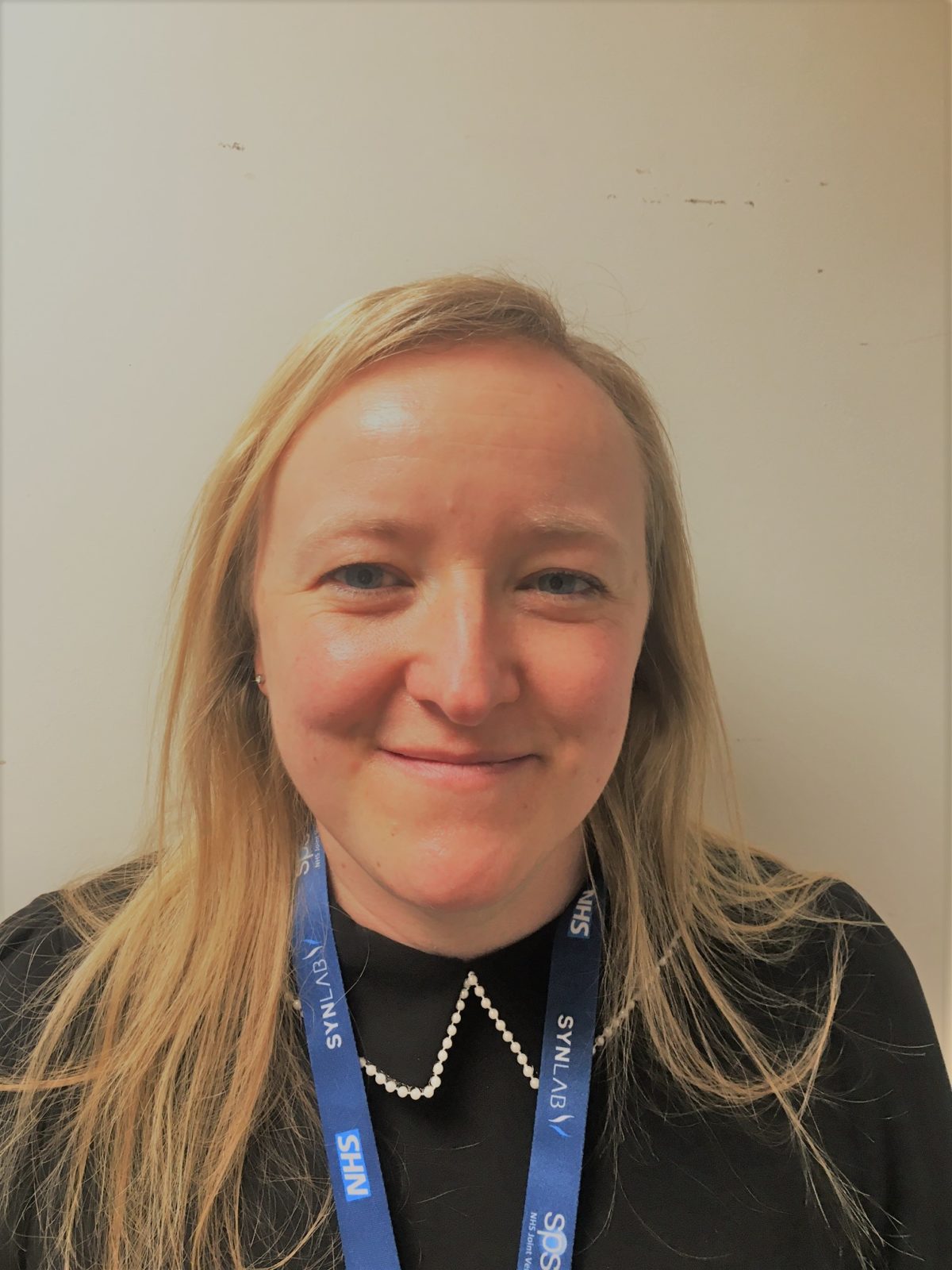
Charlie Neville-Rutherford
Advanced Practitioner BMS, Southwest Pathology Services
1. When did you decide to pursue science and what inspired you to do so?
I was always interested in finding out how things work and was naturally drawn to science and technology at school. My biology teacher really got me interested in biological sciences and I discovered biomedical science while looking through old university prospectuses and thought it looked interesting.
2. What is the most rewarding part of being a scientist for you?
The most rewarding part of the job is the fact that it makes a real difference every day towards improving people’s lives. Pathology tests help to diagnose and monitor people every day, informing treatment decisions and improving people’s quality of life.
3. What are the greatest challenges?
Trying to keep up to date with all the latest guidelines and standards and having to deal with more demands on your time.
4. What do you think that companies like SYNLAB can do to encourage more girls and women to seek careers in areas of life sciences?
SYNLAB can engage with the public so that people are more aware of what professions are available in life sciences. Getting out to schools and colleges can help to inspire the next generation, but that can’t happen if they don’t know these exciting careers exist.
5. What benefits do you as a scientist get from working at SYNLAB?
I come from an NHS background and have only just started to work with SYNLAB. I can already see differences in the way SYNLAB can implement changes and improvements much faster. They also have a lot of development opportunities open to staff which aren’t always available to people working for the NHS.
6. Even though we see more women pursuing careers in life sciences, we still have a long way to go based on the UNESCO statistics. What would you tell a young person considering studies in science, technology, engineering and mathematics (STEM) disciplines?
STEM disciplines can lead to fascinating careers that can make a huge difference to people’s lives. Try to get some work experience to help you find out about what careers are out there. This will help you focus on the areas you need to study to achieve your dreams.
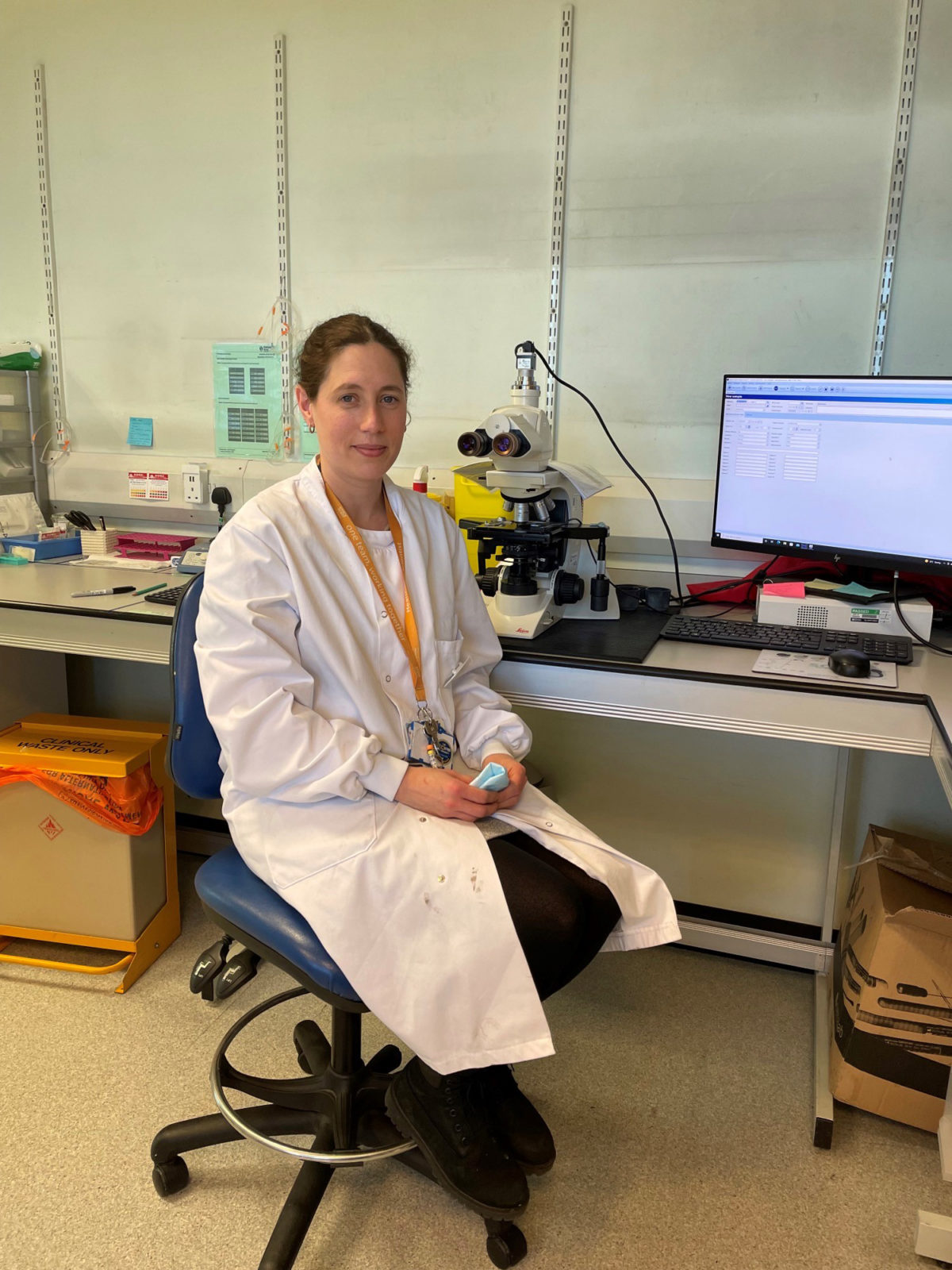
Victoria Hills
BMS Team Manager, Pathology First
1. When did you decide to pursue science and what inspired you to do so?
A family friend was a senior biomedical scientist in haematology – he gave me a fascinating fact about the blood and inspired me to become a biomedical scientist. It was after some work experience at age 17 that I decided histology was my favourite discipline.
2. What is the most rewarding part of being a scientist for you?
I like training the next generation of biomedical scientists.
3. What are the greatest challenges?
Obviously there have been many challenges in medical science over the years, with the most recent being the COVID pandemic. However, I try not to see challenges but opportunity for adaption, improvement and growth.
4. What do you think that companies like SYNLAB can do to encourage more girls and women to seek careers in areas of life sciences?
SYNLAB taking part in promotional events like the ‘IBMS Biomedical Science Day’ really helps to promote our profession.
Also, I think just generally talking about our jobs and our profession, especially to girls and women. I tell my six-year-old daughter all about my job being a scientist – she asked for a microscope for her birthday and wants to be a scientist like mumma!
5. What benefits do you as a scientist get from working at SYNLAB?
I think for me diagnostics is the best part of being a scientist at SYNLAB. It’s rewarding being part of the patients’ health pathways.
6. Even though we see more women pursuing careers in life sciences, we still have a long way to go based on the UNESCO statistics. What would you tell a young person considering studies in science, technology, engineering and mathematics (STEM) disciplines?
If you want to pursue a career in a STEM discipline you should go for it. Do your research when choosing a degree and look out for training opportunities like apprenticeships in your chosen industry.

